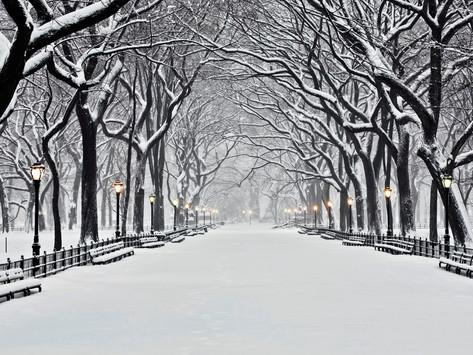
Is it just me, or is the New Year’s resolution a peculiarly fearsome ideal? We are graced with yet another year of this mysterious thing we call life, and we decide to celebrate by controlling the living daylights out of it. This year, we promise ourselves, we will constrict or constrain or prevent or lose or otherwise fix the things that we’ve decided didn’t work for us last year. Or maybe we’ll attempt to master or gain or achieve something else we are sure will complete us once had. Usually, numbers are involved. Usually, we are at the center of our resolutions, as is some kind of attempt to change ourselves.
I’m actually not totally against New Year’s resolutions, but the way they are generally hatched seems to encourage us to simultaneously focus on ourselves and identify something unacceptable about ourselves we should try to change. It’s no wonder, then, that so many resolutions “fail,” and good riddance, if this is the stuff they’re made of.
But I love the idea of taking a moment to pause every year and soak in the wonder of being able to choose who we are in this world and what we make of it. And this wonder makes me glad that I am still open to wonder itself, that I’m still willing to learn, and be surprised, and see something as new. It makes me want to dedicate myself to New Year’s revelations – to hold the cold of winter and be a little frightened and a little nervous and a little excited all year long, to be committed to being surprised, and maybe a bit upended.
There’s a poem by Jane Kenyon that I love to read every year around this time, and by way of closing this post, I’m going to share it with you here. I suspect it’s usually taught as a poem about death, but it really strikes me as a poem about life. I think it so beautifully captures what it feels like to face the unknown and embrace it – not attack or shape or change it – but embrace it just as it is: terrifying, electrifying, and full of limitless potential.
Let Evening Come
Jane Kenyon
Let the light of late afternoon
shine through the chinks in the barn, moving
up the bales as the sun moves down.
Let the cricket take up chafing
as a woman takes up her needles
and her yarn. Let evening come.
Let dew collect on the hoe abandoned
in long grass. Let the stars appear
and the moon disclose her silver horn.
Let the fox go back to its sand den.
Let the wind die down. Let the shed
go black inside. Let evening come.
To the bottle in the ditch, to the scoop
in the oats, to air in the lung
let evening come.
Let it come, as it will, and don’t
be afraid. God does not leave us
comfortless, so let evening come.
Photograph: Rudy Sulgan, “Central Park in Winter”
Leave a Reply